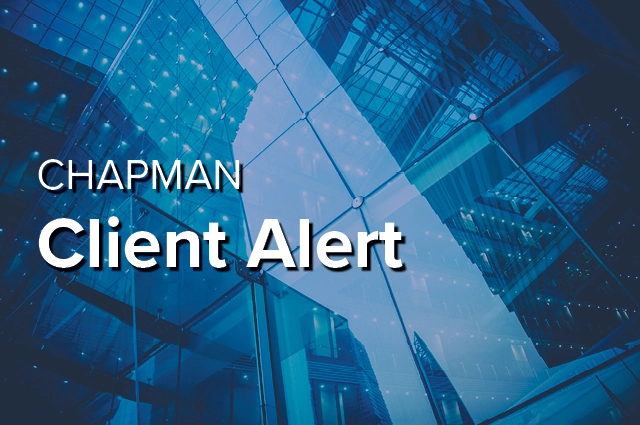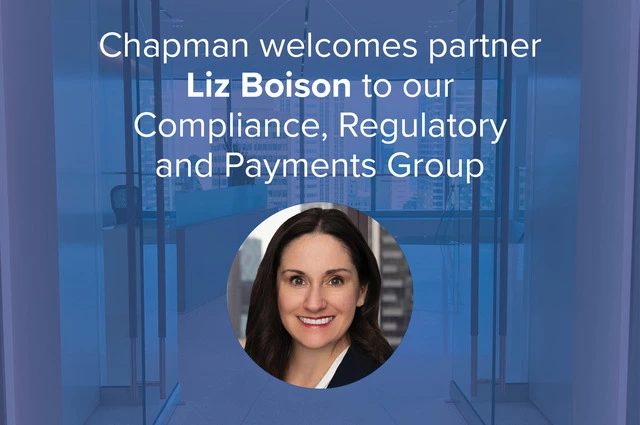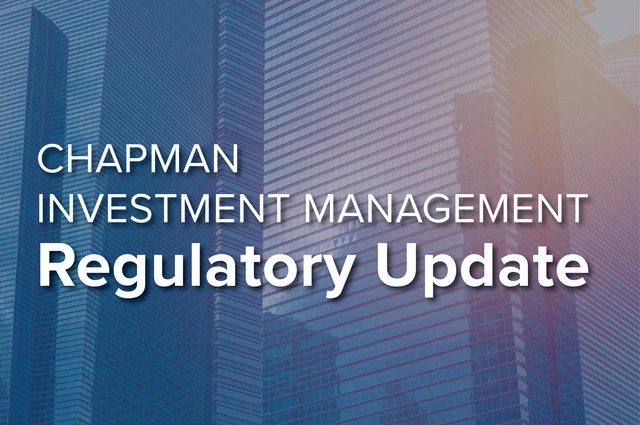- Topic: Fiduciaries
39 matches.
As reported in our recent series of Client Alerts, the Corporate Transparency Act (“CTA”) and the U.S. Department of the Treasury’s (the “Treasury Department”) Financial Crimes Enforcement Network’s (“FinCEN”) related beneficial ownership information (“BOI”) reporting rules have been the subject of a multitude of lawsuits, injunctions and announcements.
On February 17, 2025, in light of the Supreme Court’s grant of a stay in the Texas Top Cop Shop case, the District Court stayed the nationwide preliminary injunction of the CTA issued in Smith v. U.S. Department of Treasury. As a result, the BOI reporting rules are now once again enforceable and in effect.
On January 23, 2025, the Supreme Court granted a stay of the District Court’s nationwide injunction pending any further appeals. However, a different judge in the same District Court recently issued an order in a separate case (Smith v. U.S. Department of Treasury) which enjoined FinCEN from enforcing the CTA against the plaintiffs in the case and, notably, stayed the effective date of the BOI reporting rules.
As reported in our recent series of Client Alerts, on December 3, 2024, the U.S. District Court for the Eastern District of Texas (the “District Court”) issued a nationwide preliminary injunction that temporarily blocked enforcement of the Corporate Transparency Act (“CTA”) and the U.S. Department of the Treasury's Financial Crimes Enforcement Network’s (“FinCEN”) related beneficial ownership information (“BOI”) reporting rules. On December 23, 2024, the Fifth Circuit Court of Appeals (the “Court of Appeals”) granted the government’s motion to stay the District Court’s preliminary injunction pending its appeal of that injunction order. As a result of the Court of Appeal’s ruling, FinCEN extended the reporting deadline to January 13, 2025.
As previously noted in our Client Alert, on December 3, 2024, the U.S. District Court for the Eastern District of Texas (the “District Court”) issued a nationwide preliminary injunction that temporarily blocked enforcement of the Corporate Transparency Act (“CTA”) and the U.S. Department of the Treasury's Financial Crimes Enforcement Network (“FinCEN”) related beneficial ownership information (“BOI”) reporting rules, and as noted in our most recent Client Alert, the government filed an emergency motion with the Fifth Circuit Court of Appeals (the “Court of Appeals”) to stay the District Court’s preliminary injunction pending its appeal of that injunction order.
On December 3, 2024, the U.S. District Court for the Eastern District of Texas issued a nationwide preliminary injunction that temporarily blocks enforcement of the Corporate Transparency Act (“CTA”) and the U.S. Department of the Treasury's Financial Crimes Enforcement Network (“FinCEN”) related beneficial ownership information (“BOI”) reporting rules. On December 12, 2024, the government filed a motion to stay the preliminary injunction pending its appeal.
On December 3, 2024, the U.S. District Court for the Eastern District of Texas issued a nationwide preliminary injunction that temporarily blocks enforcement of the Corporate Transparency Act (“CTA”) and the U.S. Department of the Treasury's Financial Crimes Enforcement Network (“FinCEN”) related beneficial ownership information (“BOI”) reporting rules.
On April 23, 2024, the Department of Labor (“DOL”) released its final investment advice fiduciary rule, titled the Retirement Security Rule (the “Final Rule”), which re-defines who is a fiduciary on account of providing investment advice to workplace retirement plans and individual retirement accounts (“IRAs”). In addition, the DOL released several amended DOL prohibited transaction exemptions that, together with the Final Rule, are “intended to protect the interests of retirement investors by requiring persons who are defined in the Final Rule as investment advice fiduciaries to adhere to stringent conduct standards and mitigate their conflicts of interest.” The Final Rule and the amended exemptions finalize the proposed investment advice fiduciary rule and proposed amendments to the prohibited transaction exemptions, which the DOL issued on October 31, 2023. The Final Rule narrows certain provisions in the proposed rule that some commentators and industry groups argued were overly broad. The Final Rule and the amended prohibited transaction exemptions will become effective on September 23, 2024, except that certain provisions in the amended exemptions will not be phased in until one year after such effective date.
The Corporate Transparency Act (CTA) went into effect January 1, 2024. Under the CTA, all newly created entities are now required to file a report with the U.S. Department of the Treasury’s Financial Crimes Enforcement Network (FinCEN) within 90 days of formation, unless an entity qualifies under one of 23 exemptions. That means, unless an exemption applies, any newly formed LLC, limited partnership, corporation, statutory trust, or other organization that is created by filing with a secretary of state has an additional federal filing requirement. All existing entities formed prior to January 1, 2024, that do not qualify for an exemption have until the end of 2024 to file a Report.
- LexisNexis Practical Guidance
On April 13, the Department of Labor released guidance on the prohibited transaction exemption pertaining to fiduciary investment advice for retirement investors, employee benefit plans and investment advice providers.
On April 14, the U.S. Department of Labor announced guidance for plan sponsors, plan fiduciaries, record keepers, and plan participants on best practices for maintaining cybersecurity, including tips on how to protect the retirement benefits of participants.
The Department of Labor announced that it will not enforce its previously issued final rule regarding plan fiduciaries’ use of environmental, social and governance factors in selecting investments for tax‑qualified retirement plans.
On October 30, the Department of Labor issued a final rule which amends its 1979 investment duties regulation under the Employee Retirement Income Security Act of 1974, as amended, to update and clarify its position with respect to ERISA plan fiduciaries’ use of environmental, social and governance factors in selecting investments.
This Client Alert covers the new rules that apply to decanting. It is the fifth installment in a six-part series on the new Illinois Trust Code.
This Client Alert covers the new rules that apply to beneficiary representation. It is the fourth installment in a six-part series on the new Illinois Trust Code.
This Alert covers the new rules that apply to the modification or termination of irrevocable trusts. It is the third installment in a six-part series on the new Illinois Trust Code.
This Alert covers the newly created powers granted to a trustee under the ITC, a well as the previously existing, but now codified, powers. This Alert is the second installment in a six-part series on the new Illinois Trust Code, a version of the Uniform Trust Code.
Last week, Governor Pritzker signed HB 1471, giving Illinois new trust laws as of January 1, 2020. This Alert is the first installment in a six-part series on the new Illinois Trust Code, a version of the Uniform Trust Code.
Overlooked in the many discussions about the new tax laws are the consequences on trusts and estates and the high likelihood trusts and their beneficiaries will see larger income tax bills for the next seven years. This Client Alert focuses on how the tax changes will impact trusts and estates, identify some of the significant uncertainties and provide recommendations for fiduciaries.
The Department of Labor published its proposal to delay for 18‑months the more onerous provisions of the exemptions that were issued in connection with the DOL’s fiduciary rule. The exemptions were supposed to be fully effective January 1, 2018. Instead, the DOL has proposed that they become fully effective July 1, 2019.
The Department of Labor recently issued another set of FAQs, focusing on advisors to 401(k) plans. The FAQs generally address two issues.
In a court filing on August 9, the Department of Labor notified the court that it recently submitted proposed amendments to the three exemptions to its fiduciary rule to the Office of Management and Budget.
The Securities and Exchange Commission announced that it is requesting comments from retail investors and other interested parties on the standards of conduct applicable for broker-dealers and investment advisers.
Labor Secretary Alexander Acosta confirmed in an Op-Ed in the Wall Street Journal that the Department of Labor fiduciary rule will become applicable on June 9. Along with the Op-Ed, the DOL issued new Conflict of Interest FAQs related to the June 9, 2017 to January 1, 2018 transition period and Field Assistance Bulletin No. 2017-2.
Yesterday the Department of Labor released the final rule delaying the applicability of the DOL fiduciary rule and the related prohibited transaction exemptions to June 9, 2017. The rule was originally set to become applicable on April 10, 2017.
The Department of Labor announced a proposed 60-day delay of the applicability date of the DOL fiduciary rule and related exemptions. The DOL has allowed a 15-day comment period providing all interested parties an opportunity to comment on the proposed delay.
President Trump issued a memorandum directing the Department of Labor to conduct an analysis of the fiduciary rule’s potential impact. Depending on the results of its examination, the memorandum instructs the DOL to publish for notice and comment a proposed rule to rescind or revise the rule.
The Department of Labor released on January 13 two sets of frequently asked questions to provide additional guidance on its new fiduciary rule. One set of FAQs is directed at consumers to better help them understand the Rule. The other set of FAQs is directed at financial service providers to address the regulation defining “investment advice.”
The staff of the Securities and Exchange Commission’s Division of Investment Management has released guidance focused on disclosure issues and certain procedural requirements associated with mutual funds implementing intermediary‑specific variations to sales loads and adding new share classes.
On October 27, the Department of Labor issued its first wave of FAQs to address certain questions that have arisen with respect to the DOL’s previously issued fiduciary rule. Generally, the Rule broadly defines who is a fiduciary under the Employee Retirement Income Security Act and the Internal Revenue Code.
On August 25, after approximately five years of litigation concluding with a 25-day bench trial, Judge Peter G. Sheridan issued the opinion of the U.S. District Court for the District of New Jersey in the first trial of a “manager-of-managers” theory of liability for breach of fiduciary duty.
- July/August 2016Practical Compliance & Risk Management for the Securities Industry
Following the implementation of Dodd-Frank's rules and regulations and the initial wave of SEC examinations of municipal advisors, management and compliance personnel are navigating through the rules while continuing to run their business and service clients.
The Securities and Exchange Commission’s Office of Compliance Inspections and Examinations recently issued a Risk Alert announcing that they will be undertaking an examination initiative focused on the risk that registered advisers may be making conflicted recommendations to their clients.
This alert addresses several frequently asked questions related to sales of unit investment trusts registered under the Investment Company Act of 1940 by those persons deemed fiduciaries under the U.S. Department of Labor's recently released fiduciary rule.
Today the U.S. Department of Labor released its highly anticipated final rule to define the term “fiduciary” and address conflicts of interest in providing investment advice to retirement accounts.
- Client Alert
On January 9, 2014, the Municipal Securities Rulemaking Board proposed Rule G-42, defining the fiduciary duties of municipal advisors to municipal entity clients and the duties and responsibilities owed to all municipal advisory clients.
- Client Alert
The Municipal Securities Rulemaking Board has released its proposed rule on the duties of municipal advisors.
- Client Alert
On August 10th, the Governor signed Public Act 97-0921 (former HB 4662 and 4663) making Illinois one of a growing number of states with statutes that address directed trusts and trust decanting. These new statutes will go into effect January 1, 2013. This client alert covers the directed trust statute.
- Client Alert
The Dodd-Frank Wall Street Reform and Consumer Protection Act (the “Dodd-Frank Act”) requires the Securities and Exchange Commission (“SEC”) to conduct a study of legal and regulatory requirements applicable to broker-dealers, investment advisers, and associated persons who provide personalized investment advice and recommendations about securities to retail customers.









